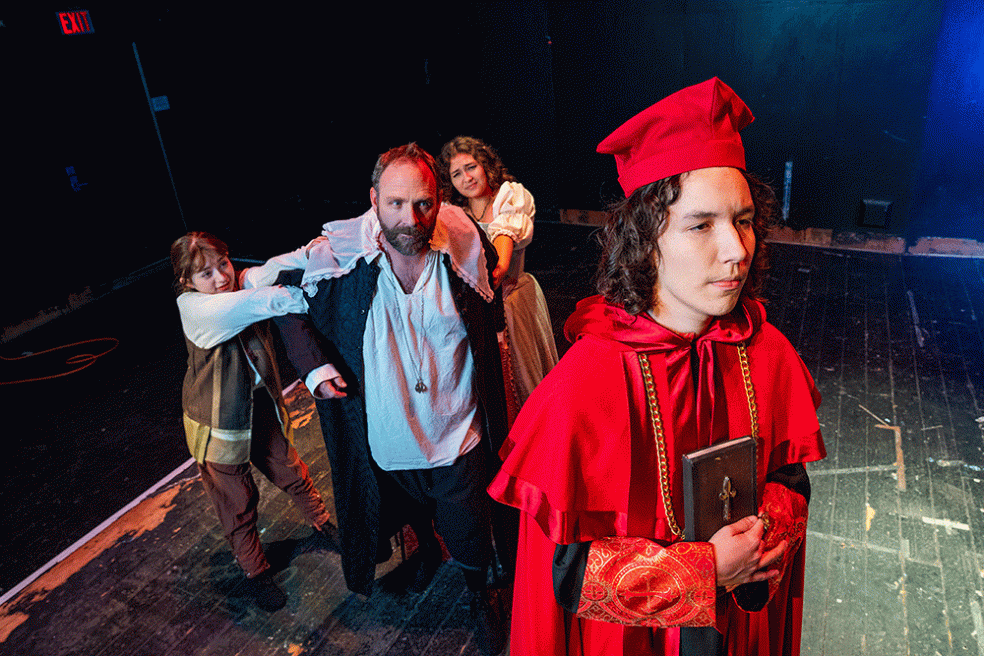
The play, by Bertolt Brecht and translated by Davis Edgar, is presented with the cooperation of the Heirs of Bertolt Brecht, and co-directed by Craig Benson and Julie Eccles-Benson. The performance is put on by the Department of Dance, Music & Theatre and will run in the Gist Hall Theatre at Nov. 3, 4, 9, and 11 at 7:30 p.m. and Nov. 5 and 12 at 2 p.m.
Tickets are $10 general, $8 for seniors and non-Cal Poly Humboldt students, and free for Cal Poly Humboldt students with ID. Tickets may be purchased at the door or in advance at centerarts.humboldt.edu.
Set in 17th-century Italy, the play hews closely to the historic life of Galileo Galilei and reveals the social dichotomies of the time. Galilei is the avatar of the emerging scientific method, skeptical and observant, pitted against the entrenched ideologies of the church and the power which it asserts over society through the control of information and the dogmatic restrictions of the faith.
Brechtian plays are “epic theatre” self-consciously retelling a story rather than realistically embodying the events of a narrative. A combination of social observation and spass (fun), it is a method that animates the theatre so that a lay audience might attend with the enthusiasm and critical interest of spectators at a football game.
“The design of this show is just incredible and the 18 actors playing 40+ characters have really given the script a life of its own,” says Evan Pierce, student stage manager. “The script is dense, but the blocking and acting really make it an entertaining piece to watch. The costumes are elaborate. The many props are unique and have necessary historical accuracy and yet they all look so amazing.”
Eccles-Benson, co-director of the play, has been instrumental in helping students navigate the dense and difficult text of the play. The language, while “modern,” is not casual dialogue.
“I don't see a lot of Brechtian theater in Humboldt. I have a feeling that people will likely be surprised by the asides as they are very much different in tone and direction than say Shakespearian asides; even if they share similarities,” says Stephen Chittenden, who plays Fulganzio the “Little Monk.”
While now considered a piece of classical theatre, “The Life of Galileo” still has a place in the modern repertoire. Co-Director Craig Benson says the play is important because it reflects on how we talk about science in our society. Not unlike the church’s reluctance to embrace the new scientific discoveries of the time, lest it disrupt the social order and their power over it, today’s power brokers in some political circles are too apt to deny the mountain of evidence warning of the destructive consequences of climate change, over-consumption, and loss of biodiversity. The play also interrogates the values of constancy of an individual, even if they are remarkable, in the face of oppression.